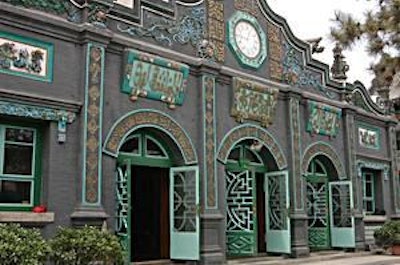
Shopping in the early morning and cooking for the rest of the day was a routine followed by Rahman Ismail for 20 years. Now, however, things have changed.
Rahman, chef at the Shanghai-based Asman halal restaurant explains: “I have to slaughter chicken by myself since I moved here a few months ago.”
Therein lies the problem – there is no halal poultry supplier in Shanghai and Rahman and his assistants must slaughter 25-35 birds by themselves every day to ensure halal-compliant meat supplies. For another restaurant, he needs to slaughter a further 10 birds.
Supply not meeting demand
Trade is growing at Rahman’s restaurant, and being able to source ready-to-cook halal chicken would make life much easier.
And Raman in not alone in his wish for halal chicken, Muslims in other parts of China would also welcome more suppliers. “When customers come, who has time to kill chickens?” Raman asks.
Deputy secretary general at the Yinchuan-based Ningxia Islamic Association Yang Xue notes that there are some poultry factories in the Ningxia region, but most local Muslims will not buy poultry meat from them as they do not comply with Islam’s food laws.
Diagram: Acceptable slaughter standard as determined by the Halal Food Authority of the UK.
“Muslims would like to buy more chicken if there were some reliable suppliers,” says Yang, but his association has been unable to grant certification to any local producer.
China does, however, have a limited number of halal-certified producers, but they tend to sell their relatively small output also to overseas markets, limiting local supplies.
HenanYongda, for example, produced some 40,000 tons of frozen halal chicken meat in 2003, but a quarter of this was sold outside the country.
Support
There are initiatives in place to support the halal sector in China. For example, the Shanghai authorities provide a 5,000 yuan (US$732) subsidy to each halal food store.
There are currently an estimated 22 million Chinese Muslims. The country’s halal food industry, thought to be worth US$2.1 billion in 2006, is growing by 10 percent annually.
The industry is concentrated in the Xinjiang Uighur region, Ningxia Hui region and the provinces of Qinghai, Henan and Guangdong. But demand would appear to still be outstripping supply.
“I currently pay 14 yuan for each kilo of live chicken now,” says Rahman. “But I would pay 20 yuan if I could buy ready-to-cook halal chicken. I want to be able to do what people in other Muslim regions do – make a call, place an order and receive halal chicken.”
.jpg?auto=format%2Ccompress&fit=crop&h=167&q=70&w=250)














